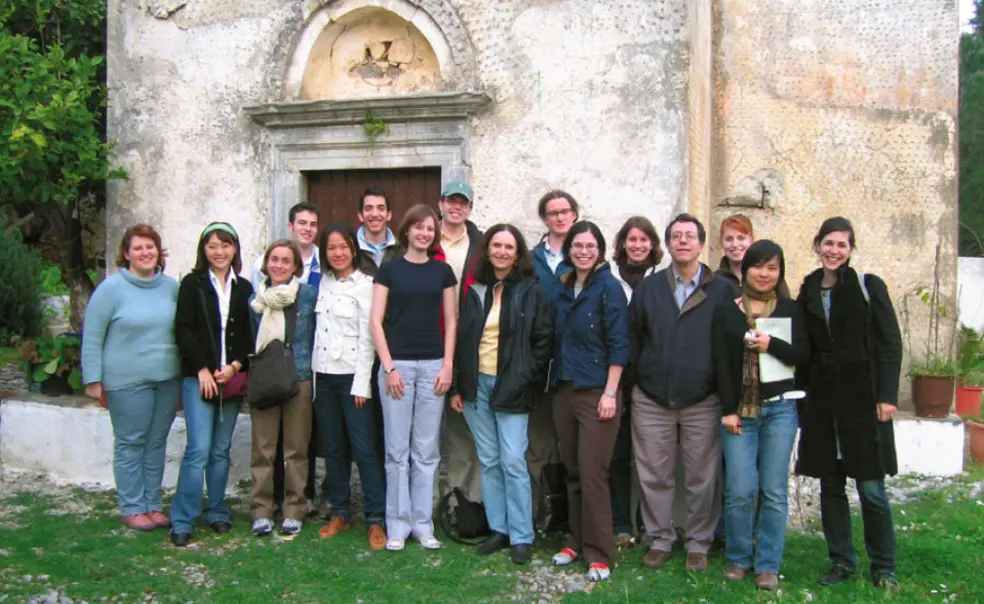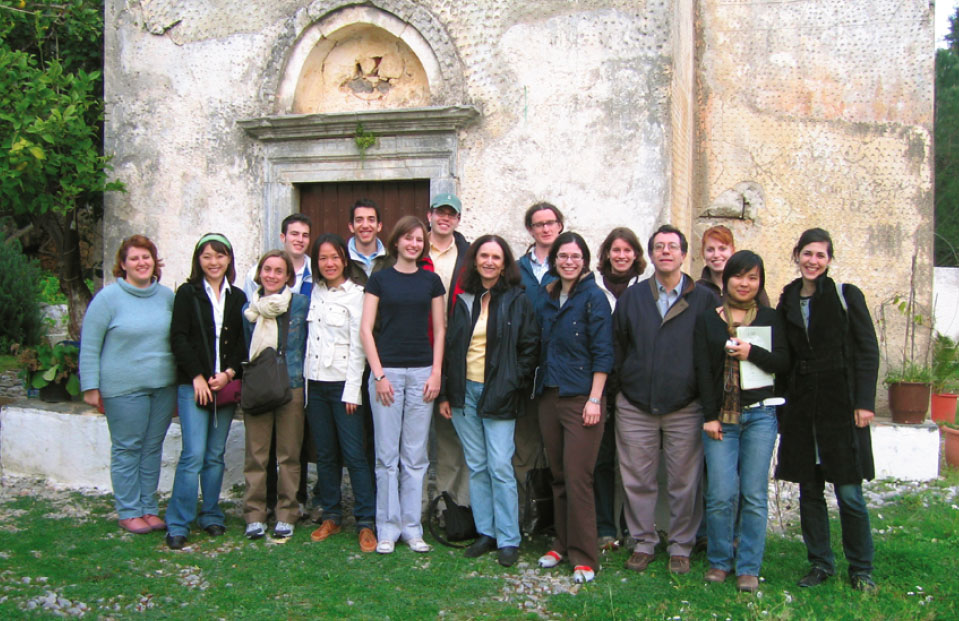The Florescence of Hellenic Studies
The Alumni Weekly provides these pages to the president.
A lot can happen in 30 years, and Princeton’s Program in Hellenic Studies, established in 1979, is a perfect case in point. Thanks to the expansive vision of Stanley J. Seeger Jr. ’52 *56, and the generous support of the Stanley J. Seeger Hellenic Fund, Princeton has created one of the world’s great centers for the study of Greece and the global influence of Greek ideas. Indeed, I know of no university outside Greece itself that has brought together so much talent, so many scholarly resources, and so many opportunities for cultural and intellectual exchange between Americans and Greeks as Princeton.
From the outset, the Program in Hellenic Studies has had four major strengths, beyond Stanley’s unwavering support. The first has been the central place of the humanities at Princeton and, in particular, the historic vitality of Classical, Byzantine, and modern Greek studies on our campus. The program, in other words, took root in fertile soil. Its second great strength has been its innovative spirit that anticipated the Princeton of today in its pursuit of interdisciplinarity, in its embrace of the arts, and in its commitment to internationalism. Third, the program’s dynamism can be traced to its inclusive definition of Hellenic studies—one that transcends the geographical limits of modern Greece to include the Mediterranean basin, the Greek diaspora, and the reception of Greek ideas in other times and cultures. The program has also welcomed the exploration of all things Greek in every age—from late antiquity to our own day; from Hellenic influences on the Renaissance to the philhellenism of the 19th century. In short, it has brought together a mosaic of fields and disciplines through what the great Greek poet C. P. Cavafy would call “flexible policies of judicious integration.” While these conditions were necessary for the flowering of Hellenic studies, the most critical ingredient has been the inspired leadership of Dimitri Gondicas ’78, the program’s long-serving executive director whose imagination, energy, and generous spirit have been its guiding light. Together with a series of remarkable faculty chairs, W. Robert Connor, Edmund Keeley ’48, Alexander Nehamas *71, Peter Brown, and Slobodan Ćurčić, Dimitri has built a program that is one of the jewels in Princeton’s crown.
Of course, Athens was not built in a day. By initially offering comparative courses, for example, the program attracted students who might not have been drawn to the study of the Hellenic world per se, and by making the support of faculty and student travel to Greece an immediate priority, the program opened a new gateway to Europe and the eastern Mediterranean that soon proved irresistible. At the same time, the program began building a world-class collection of books, manuscripts, art, and other objects in support of scholarship and teaching, ensuring that our faculty, students, and visitors would have access to a rich array of primary and secondary sources.
Today, a score of undergraduate and graduate courses, attracting more than 250 students annually, are sponsored by the program, ranging from classes in modern Greek to seminars such as “Greeks, Turks, and Slavs: Nationalism in the Balkans” and “Classical Antiquity and Modern Poetry.” Each year more than 80 members of our University community travel to Greece with the assistance of Stanley J. Seeger Summer Fellowships to conduct research, take courses, assume internships, or participate in archaeological excavations, while more than 20 visiting fellows, most from Greece, are provided with the means to pursue their scholarly interests at Princeton. Perhaps the most powerful of the overseas experiences available to our faculty and students is the annual Mount Menoikeion Seminar, which offers them a chance to immerse themselves in the life of an ancient monastic community and its beautiful environs. And this is just the tip of an iceberg of scholarly and cultural activities at home and abroad that the program has inspired and supported—from major exhibitions with the Princeton University Library and Art Museum to books on modern Greek studies with the Princeton University Press; from the recruitment of Greek undergraduates to the provision of graduate and, unique to Princeton, post-doctoral fellowships; from bringing Greek writers and artists-in-residence to campus to organizing more than 50 lectures, colloquia, and other events each year. This is the remarkable outcome of Stanley Seeger’s generosity 30 years ago, and it is one in which Princetonians and Hellenists around the world can take great pride.













No responses yet